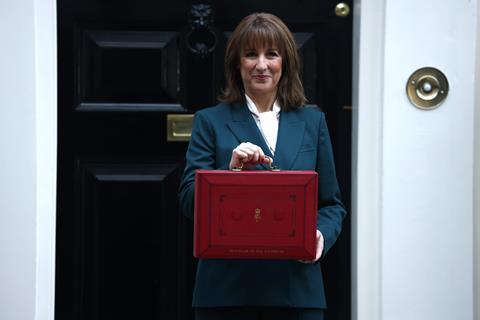The fear of wealth taxes is driving many UK billionaires offshore to places with friendlier tax policies. George Pitcher is questioning their refusal to undertake a shared duty to give back, and the price they’re paying for it that isn’t financial

It’s a tenet of the capitalist faith that the common good is served by free enterprise that creates wealth, from which public services are subsidised for through taxation. It’s partly why the serial political resigner Lord Mandelson once said in his New Labour days that he was “intensely relaxed about people getting filthy rich as long as they pay their taxes.”
But there’s evidently a balance to be struck. Make the filthy rich pay too much tax and they’ll leave the country and public services receive none of their benefaction. So it is that the UK’s loss is Dubai’s gain.
The billionare exodus
A string of formerly UK-based billionaires are off to the Emirates, driven by fear of wealth taxes: Steel magnate Lakshmi Mittal is reportedly off there, joining an exodus that includes AI and metaverse chief Herman Narula, gym-clothing boss Lewis Morgan, fintech tycoon Nik Storonsky and shipping mogul John Fredriksen.
It’s not all jets to Dubai. Private-equity investor Christian Angermayer has opted for Switzerland and retail haulage magnate Steve Parkin for Jersey. They will all keep more of their hard-earned cash in the exotic exile of these tax-enlightened territories.
That single motive requires interrogation. It’s hardly that chancellor Rachel Reeves has squeezed them “until their pips squeak” in her budget this week, as a former Labour chancellor did in the 1970s. It’s not as if the freezing of income-tax thresholds is likely to drag them into higher bands, or that council-tax hikes on bigger houses are likely to make them feel impoverished. So it may just be that they want to keep as much as they can as a kind of ideology of wealth entitlement.
Whether you ascribe abundance to luck or to divine grace, you are accountable not so much to the tax authorities as to the source of your wealth.
That desire seems to override some very basic principles of quality of life. In Dubai, it’s an offence to kiss your spouse in public. Quite literally, one asks: What price freedom? I recall reading in those high-tax days of the 70s that an English rock band – I think it may have been Pink Floyd – had become tax exiles from even the relatively emollient United States.
Where do you end up living if you’re just too rich to pay taxes? Perhaps on a rock in the south Pacific. It seems that too much money can make you live somewhere you don’t want to, rather than the reverse, which is why so many of us try to earn it in the first place.
If you’re well off, I would expect to find you where you want to be, not where you want to feel even richer and where, like Dubai, you have to abide by strict public dress codes to avoid arrest. Beach resorts in the shape of palm trees seem like poor compensation.
The shared duty to share
A friend of mine made a great deal of money out of the music industry in the same era as Pink Floyd, when there really were super-tax rates for the rich. He views the paying of tax as a privilege, even an honour that he is able to make such a contribution to improving the social experience. He remains unusual in that.
He is not what you would describe as a religious man, but the faithful would recognise an instinct in him. It’s the idea that all abundance is a gift to be shared. Whether you ascribe it to luck – literally, good fortune – or to divine grace, you are accountable not so much to the tax authorities as to the source of your wealth. Again, whether that source is the sheer luck of the draw or a beneficent God to whom you are grateful, you’re obliged to share it.
There isn’t really a Christian imperative on tax. The nearest we get to it is when the Nazarene is asked whether the Jews are impelled to pay their taxes to their Roman oppressors. He asks to see a Roman coin and asks whose image it bears. Caesar’s, he is told. So, he says, give Caesar what is due to him and to God what is his.
This is often invoked as the distinction between the secular and sacred worlds. I think that’s an inadequate interpretation. The bigger question is to whose abundance we are accountable. Is it Caesar and the state – in our case represented by Rachel Reeves – or to something much bigger, the source of our social conscience, the fount from which springs all human generosity of spirit, as well as of worldly wealth?
If it is in any sense the latter then it becomes a human duty for those with more of an abundance to share proportionately more. And that, as my rocker friend affirms, is a privilege rather than an imposition.
There is an alternative and it’s offered by Dubai and other refuges for the avaricious. Many of the super-rich are seeking them out. Good luck (and fortune) to them, though they may find they’re putting the miser in miserable.






































3 Readers' comments